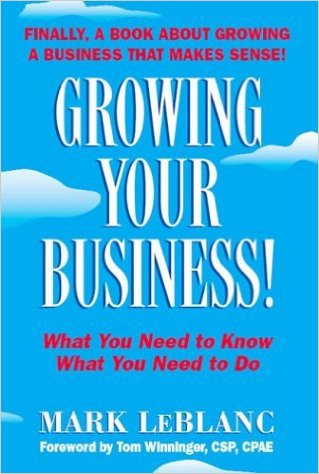On October 18, 2016, LuminFire (formerly Cimbura.com) hosted a Grand Opening Celebration of their new office location (5155 East River Road) in Fridley, MN, with Mayor Scott Lund at the ribbon cutting ceremony, keynotes from business growth expert Mark LeBlanc and business strategist and trust expert David Horsager, and many local clients in attendance.
“We appreciate our clients’ contribution to the growth and success of LuminFire and wanted to take this opportunity to give something back. One of our top values at LuminFire is appreciating our relationships to our clients and people close to us. This manifests itself in work-life balance. We work hard building brilliant FileMaker, WordPress, and GIS solutions…but we also play hard enjoying life to its fullest. Besides being the ideal work and collaboration space, our new office is an incredible event center, where we will host local Meetup groups and hold special events on a regular basis.”
-Tim Cimbura, CEO
Incredible Growth: LuminFire has provided technology design and a custom CRM solution that catapulted its business growth from three people in a home office just two short years ago to a business with 15 employees and revenue of over $2.5 million and growing. That is incredibly focused growth.
Business development and success expert Mark LeBlanc knows just how important it is to be focused. People walk away from Mark’s presentations more focused, able to attract more prospects, stimulate more referrals and ultimately creating a path and a plan for generating more business.
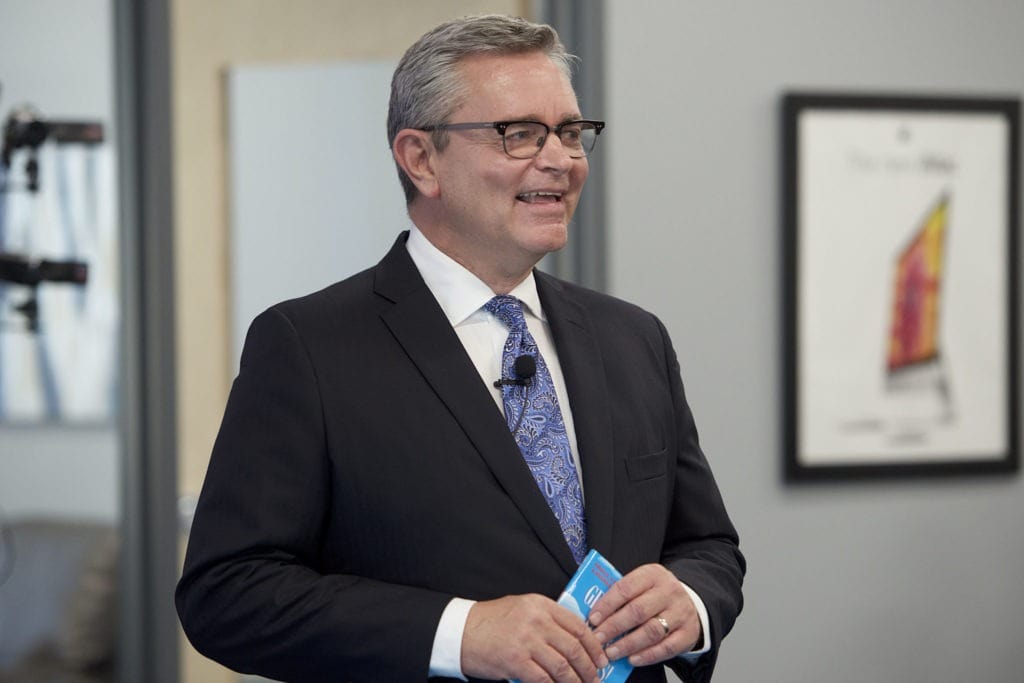
Learn how Tim Cimbura and Mark LeBlanc are connected and how Mark was instrumental in the growth of LuminFire.
Below is a full transcript of the introduction and video of Mark LeBlanc’s presentation at the grand opening event…
Tim: We’re happy to have a very special guest with us. I met Mark LeBlanc about 10 years ago when I attended one of his Achievers’ Circle events. Mark is the expert about growing small businesses. His ideas have been instrumental to our growth.
With his help we developed key marketing concepts for our business like “Your business ‑‑ more effective, productive, and profitable.” Mark encouraged me to focus. I am also a magician and juggler. I had to choose at some point. “Do I want to focus on technology or speaking, magic, and juggling?”
I fought it for a while, and my business card said both. Focusing on technology led me to leaving my full‑time job about six years ago, and that was very challenging. I hoped to make my mortgage at that time because we didn’t really have any clients.
Mark predicted though that we would be doing over a million dollars very soon, and that number sounded completely impossible. Now, we make the mortgages for more than 15 people, so we’re doing a lot better.
Mark told us as well as a consultant that we should get an office space, and I fought that as well. I said, “No, I’m building a house, so I have a larger office in my house. I want to work out of my house forever.” That worked for a little while, but you can’t have 15 people in your house on a regular basis.
Now, we have this. Mark really inspired me to think differently about our business, and applying his wisdom led to our growth. I hope today he’s going to inspire you in the same way and help transform your businesses. Please, welcome Mark LeBlanc.
Mark LeBlanc: Thank you.
Thank you, Tim. I actually think I need to apologize. It seems like he’s incredibly resistant to a number of the ideas that I’ve shared with him… and Brenda along the way. I probably need to apologize more than anything because I actually see something different in your future. It’s not a million dollars a year. I see a hundred million dollars a year…
Hello.
[laughter]Mark: Can you hear me now? OK. I see a hundred million dollars a year as long as you don’t raise your fees to anybody that is currently in this room.
[laughter]Mark: As well as the second thing I see is possibly you owning this building rather than renting this building. A couple things that Tim doesn’t know about me, at least I don’t think you do. That is, I’m also from the Northeast here in Minneapolis. I was actually born on First and Central Avenue.
I went to Immaculate Conception Grade School, grew up in Columbia Heights, and owned a printing company on 40th and Central Avenue. The other thing that Tim doesn’t know is that when the Macintosh first came out and he got one, I also bought a Macintosh 512K with an external drive and MacWrite and MacPaint.
I believe I paid $9,500 for that Mac [laughs] 512, MacWrite, MacPaint. I got one of the first Apple LaserWriters, and it was one of the best business decisions I ever made. I’ve been on my own my entire adult life. I had a job once for six months, and I found out at a very early age that I was unemployable.
[laughter]Mark: I’ve been on my own now for about 34 years, and I’ve had some good years. I’ve had some not‑so‑good years. I’ve had a few great years, and I’ve had a couple of years that I would just as soon may be let go of. Tim talked about something that I talk about a lot, and one of the things that I’m known for is focus.
How many of you have ever heard that expression “Focus is everything?” Would you raise your hand? Focus is not everything. Today extreme focus is everything. Have any of you ever had a day get away from you? [laughs] Every day. Someone said to me not that long ago, “Mark, that sounds like a normal day.”
There are so many things coming at us on a daily basis it often seems as if every day is a Thanksgiving meal. One of my favorite holidays is Thanksgiving. What do we typically do on Thanksgiving Day?
Mark: Pardon?
Audience Member: Eat turkey.
Mark: Turkey? How much do we eat?
Audience: Too much.
Mark: Usually a little bit too much, and I want you to think about something because we look forward to Thanksgiving and everything that it represents. It gives us an excuse to put a little bit too much on our plate.
How many of you have ever, when you got to the Thanksgiving table or your banquet or your buffet, took something that you really didn’t want? Instead of doubling up on the three or four things that you really love, you took some things and put some things on your plate so that you wouldn’t hurt somebody’s feelings. In our family we refer to that as wasting valuable stomach space.
[laughter]Mark: Typically every day for a business owner feels like a Thanksgiving banquet, and we have so much on our plate. Our ability to focus is everything as a business owner or as a leader or as a mayor. Extreme focus and focus is nothing more than making decisions and having the discipline to see those decisions through.
The more focused you are, the easier everything becomes. You tend to get what you focus on. In fact, when Tim was thinking about who should we have for open house, he thought, “Well, let’s find a speaker with a blue tie.”
[laughter]Mark: Then make me a speaker with a blue book, if we could only find a speaker with a blue book.” I wrote this book a number of years ago. If you buy one, I’ll sign it for you. If you buy two, I’ll come to your house and read it to you.
[laughter]Mark: Actually, Tim and Brenda have made it possible for each of you to get a complimentary copy of my little blue book, Growing Your Business, and I’d be happy to stick around and answer any questions, and maybe sign a book or two, if you would like.
When we think about focusing, we think about being extremely focused. I’d love to just share a couple of things with you that I think might help you. I think focus boils down to the decisions you make and the steps that you take each and every day.
The other thing that Tim might not recall is that we both found our spouses online. Tim and Brenda met online, EHarmony. Anne, my wife, we met on Match.com. Unfortunately, my marriage ended in 2004. It was a goal that I had not remembered setting.
I found myself on my own in 2004. The people who laughed the loudest know exactly what I’m talking about. I found myself on my own, and I was out in the dating world, and I wanted to be in a committed relationship.
I wanted to get married again. For some reason, I’m not sure why, but dating was just not something that was working for me. I’ve got a lot going for me. My mom is my inspiration. My dad is my best friend. My faith is important to me, and I’ve got money.
[laughter]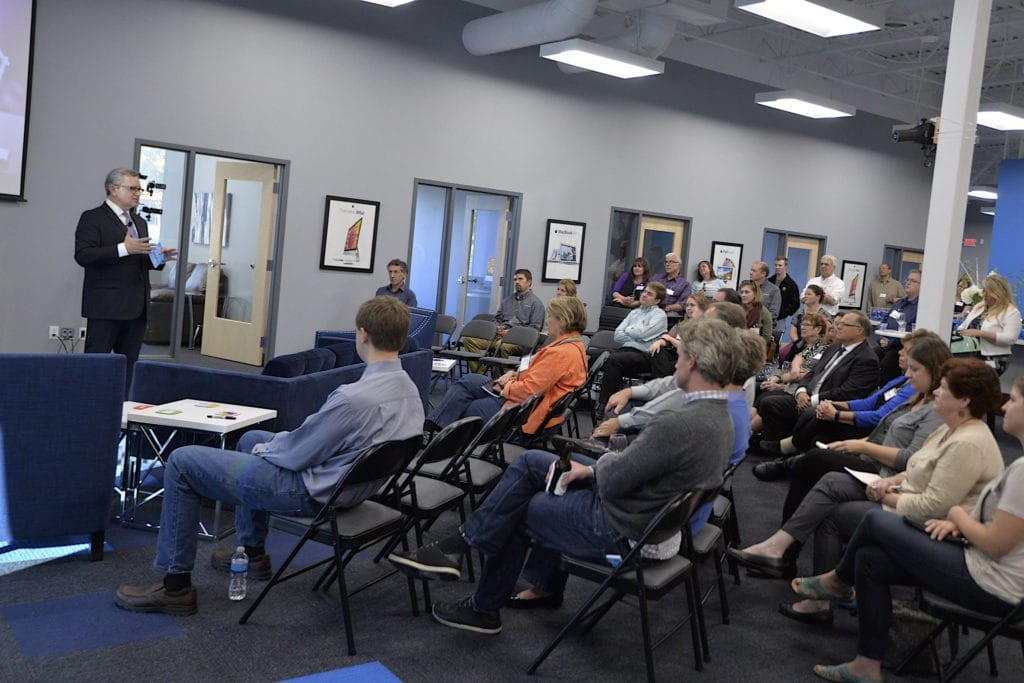
Mark: For some reason, the whole dating thing is not working for me, and I dated a fair amount over about eight years doing the best I could to find someone. I went on the worst date. It was July 23rd, 2011, the worst date in the history of mankind.
I was so discouraged as sometimes you can get when you’re in business for yourself. But I was so discouraged and so disheartened, I thought, “This is it. I’m done.” I’ve been trying for eight years to meet and fall in love with someone.
I thought, “That’s it. I’m done.” I went online after this [inaudible] , and I thought, “I’m going to cancel my subscription and hide my online dating profile.” And right before I thought, “I’m going to hit search one more time.” I hit search and up popped the lovely Anne, and my heart and my soul and I knew that I was going to marry her. I knew it. Some people know when they first met their spouse or their partner. I knew in an instant.
It wasn’t anything about what she wrote. It was a sort of unconscious knowing. Now, what you write to the woman you’re going to marry when she…I had tried just about everything in my communications, and I didn’t know what to write.
All I wrote was, I didn’t even say “hello.” I just wrote, “Where’ve you been?” and I signed my name and she got this email, and she looked at it and it intrigued her enough that she responded. She wrote me back and she said, “What do you mean where have I been, in my life, in my work?”
I wrote her back and I said, “No, what I meant was did just to get online today or in the last day or two.” I thought I knew every woman between 5’2″ and 5’9″ within 30 miles of downtown Minneapolis. I thought I had dated every single one.
[laughter]Mark: She emailed me back and she said, “No, I’ve been online for quite a while.” She had never popped up in my searches or within my criteria. Five days later we met in downtown Minneapolis, and it was game over. That was it. We were married. We just celebrated our third wedding anniversary.
I thank God every day for sweet Anne who she has become known as. Of course, I tell her I love her, how often, every day. Every day I tell her that I love her and I also do something else. Every single day, I look at her or I will email her or leave her a voicemail message and I will simply say, “Thank you for loving me, because some days it’s not that easy.”
Somehow, the combination of expressing your love for someone as well as your gratitude is a one, two little boost every single day. The other thing that Anne and I have turned into a daily ritual is we take a moment to say a little prayer every day.
We read from a daily devotional. It takes about a minute. It’s a paragraph, and then we pray for someone specifically by name every day. Through those daily routines and rituals, whether it’s my personal life or my business life, it has come to represent one of my core beliefs in business.
That is what you do every day is more important than what you do once in a while. If you are in marketing, if you are in sales, if you are in leadership, the decisions that you make and the steps that you take each and every day will ultimately take you where you want to go.
Hedge your bets. How many of you, by a show of hands, I know not everyone here is a business owner or in marketing or sales, but how many of you might have a goal or you want to make something happen in the next 30 days or in the next 90 days, maybe in your life or your work, would you raise your hand?
Why don’t you stand up for a moment? I’m not going to have you do anything crazy. hold up one finger and repeat after, kind of shake it out a little bit. Hold out that one finger and repeat after me. Make one business development a day, one a day, one a day just like my vitamins, one a day, one a day, one a day, one a day.
[audience repeats]Mark: All right, give yourself and each other a round of applause. Go ahead and sit down.
[applause]Mark: Now, as I said whether you’re a business owner or not, whether you’re in marketing or sales or not, that little principle can help you in both your business, your career, your life, your community, your non‑profit, your church or your place of worship.
I want you to just think about what can you do day in day out. here’s the rub. You’d never take a week’s worth of vitamins on a Monday, would you? You’d never wake up on Monday morning and say, “You know, I’m pretty busy the rest of this week. I’m going to get a jump on my vitamins. I’m going to take all this week’s vitamins today.”
Likewise, you would never go on vacation or you’d never skip a week of taking your vitamins and think, “Oh, my gosh, I forgot to take my vitamins last week. I’m going to catch up. I’m going to take all the vitamins for the last 10 days.” You’d never do that.
That is the most important principles or concepts that I love to share and I refer to it as this, “No plus or minus carryover.” No matter what it is you want to create in your life and/or your work for your success or your numbers or your happiness or peace of mind, get into the practice of resetting your counters to zero every day.
No plus or minus carryover. If you make one call on Monday, great. Reset your counters to zero. You look for one on Tuesday. If you make one on Tuesday and you skip Wednesday, great, reset your counters to zero. You make one on Thursday.
If you get into the habit of what are those steps that you take each and every day and then practice the art and the principle of resetting your counters to zero every 24 hours. If you get into the habit of resetting your counters to zero every 24 hours, it becomes easier to reset your counters to zero every week.
If you get into the practice of resetting your counters to zero every week, it becomes easier to reset your counters to zero every 30 days. I believe that that is the secret to your success. Reset your counters to zero every 30 days.
Why have one New Year’s celebration a year when you can have 12? Throw away the concept of the annual goal and the calendar year. The annual goal is good for nothing, but somehow, someone in business suggested that we should have an annual goal, and we should set them when?
Around the first of the year, end of December, the 1st of January. How often do New Year’s resolutions tend to last? This is the audience interaction part of the program.
[laughter]Mark: Pardon?
Audience Member: Half a day.
Mark: Half a day? Three days, a month, a week? Someone said to me not long ago, “Mark, until my next meal.”
[laughter]Mark: We know on average, New Year’s resolutions tend to last about five days. It doesn’t matter whether you hit your goal for 2015 or you missed your goal for 2015. Typically by the 5th, or the 6th, or the 9th of January, you’re right back to your same beliefs, and behaviors, and attitudes and mindsets.
Imagine if you let your New Year’s resolutions go after five days, here’s the good news, you don’t have to wait another 360 days to feel good again. Imagine if you could recapture that same “first of the year” spirit, and enthusiasm, and commitment the first day of February, and the first day of March, and the first….at least you’d have 60 good days a year.
If you got into the habit of creating a snapshot for a model month, and then look at creating a path and a plan to be at or near that model month every 30 days. I still want you to have a sense of an annual goal, but instead of the calendar year, look at it as a rolling 12‑month period.
Part of the challenge of losing our enthusiasm for New Year’s resolutions is that every January we tend to be back at the bottom of the mountain, and we’re looking at either a larger mountain or a larger peak. Imagine if you could reset your counters to zero every 30 days.
Take a deep breath. Let it out. I already shared with you that I was born in Columbia Heights. I’ve been in business my entire adult life. On March 17th of 1996, a little over 20 years ago, 20 and a half years ago, March 17th, my birthday, St. Patrick’s Day…
My favorite restaurant is Murray’s, downtown Minneapolis, if any of you want to take a note of that. Dave, Tim, Janelle, March 17th.
[laughter]Mark: We got a telephone call that my father, who had started a company. He worked for Honeywell for a number of years, and he started a real estate business in Columbia Heights. In 1996, at the age of 61, he had had a massive stroke and was not expected to live even three days.
My dad did live, but he was not expected to live three days. The interesting thing about my dad was, about a month before his stroke, my dad called me and he said, “You know, Mark, I’m not going to retire. I’m going to give the next 10 years everything that I’ve got in my business. I don’t think that I’ve ever really even come close to reaching my potential.”
I wanted to say, “Dad, I’m not so sure you can retire,” but that was my inner voice. You see, my dad was never much of a saver. On the day that my dad had a stroke, my parents didn’t have anything set aside in reserves. They had no retirement.
My dad was always a “Let’s just work hard, live by our faith, and everything will take of itself.” My dad never worried about it, but who worried about it? The COO, my mom, worried about it. My mother was always second‑in‑command, as was common in that generation.
My mom was always picking up after my dad, and dotting the I’s, and crossing the T’s. Our family went through about 12 months, we didn’t even know what a stroke was. Some of you do, or some of you had something similar to that happen in your world. It took our family about a year to work through the trauma and the grief.
At this time we were living in northwestern Minnesota, a small town, about a thousand people, where my mom and dad were in the real estate business that they started here in Columbia Heights. They just celebrated their 50th anniversary of LeBlanc Real Estate in northern Minnesota.
My mother, about six months into that transition, called me in tears. She said, “Mark, I need to borrow $5,000.” I said, “Mom.” I said, “No, I’d be happy to.” Through her tears she said, “I will pay you back.” I said, “Mom, don’t worry about it,” and I overnighted a check for $5,000.
My mother was 60 years old at that time. They owned two small businesses in northern Minnesota. Over the next 10 years, between the ages of 60 and 70, my mother dialed down one business, like Tim, and she more than quadrupled the remaining business.
My mother got them debt‑free, mortgage‑free. She put over $150,000 away for their retirement in that decade called the ’60s. She bought a brand new car and wrote a check for it. My mom and dad have no real financial concerns today.
Like Tim and Brenda, my mother is a small business success story. In fact, at the age of 70 she sold the business and now continues to get a residual income. How often? Every 30 days. We’re all incredibly proud of her. By the way, she did pay me back the $5,000, with interest.
[laughter]Mark: I didn’t charge my mom interest. I wouldn’t have done that, but it was important to her, as she became more successful, to pay back her son who had given her $5,000. After my mother sold their business I was having a conversation with her, and I said, “Mom.”
I said, “How did you do it? With everything that you had on your plate, how did you do this?” My mother looked at me as only a mother can look at her son, and she said, “I read your book.”
[laughter]Mark: I said, “What?” She said, “Well, I don’t know if you remember, but you wrote this little blue book.” I said, “What are you talking about?” She said, “I read your book.” Then she said, “Mark, I didn’t understand half of what was in your book, but I learned one thing, and that is it’s not about me.
If a prospect is not interested in what I have to offer or sell, I simply move on to the next one.” She did something that I referred to as “strengthening the next muscle in your head and in your heart.” I know that Tim and Brenda have gotten to this place through a lot of blood, sweat, and fears.
I expect that they’re not necessarily going to go away. I don’t think the fears go away. Do they, Tim? No. [laughs] He’s so scared, he can’t even answer.
[laughter]Mark: Fear is a part of our lives, and of our work, and our businesses every single day. The decisions you make and the steps that you take each and every day will ultimately take you where you want to go or they won’t.
I know that Tim and Brenda have created a team that loves to come to work. Who wouldn’t want to come to work here with Tim and Brenda? If things slow down, I might apply for a position.
[laughter]Mark: I expect incredibly great things for both of them and for all of your teammates. Would you please give it up for Tim and Brenda?
[applause]Mark: It’s a great honor to be invited to be here, and share some thoughts and ideas with your friends, and your family, and your people, and your clients, and the people that you interact with. I’m actually a warm‑up speaker for the next speaker in a little while, David Horsager, who wrote an amazing book title “The Trust Edge,” so stick around.
I’d love to meet you, shake your hand, answer a question or two. Again, I’m incredibly proud of Tim and Brenda. Give it up one more time.
[applause]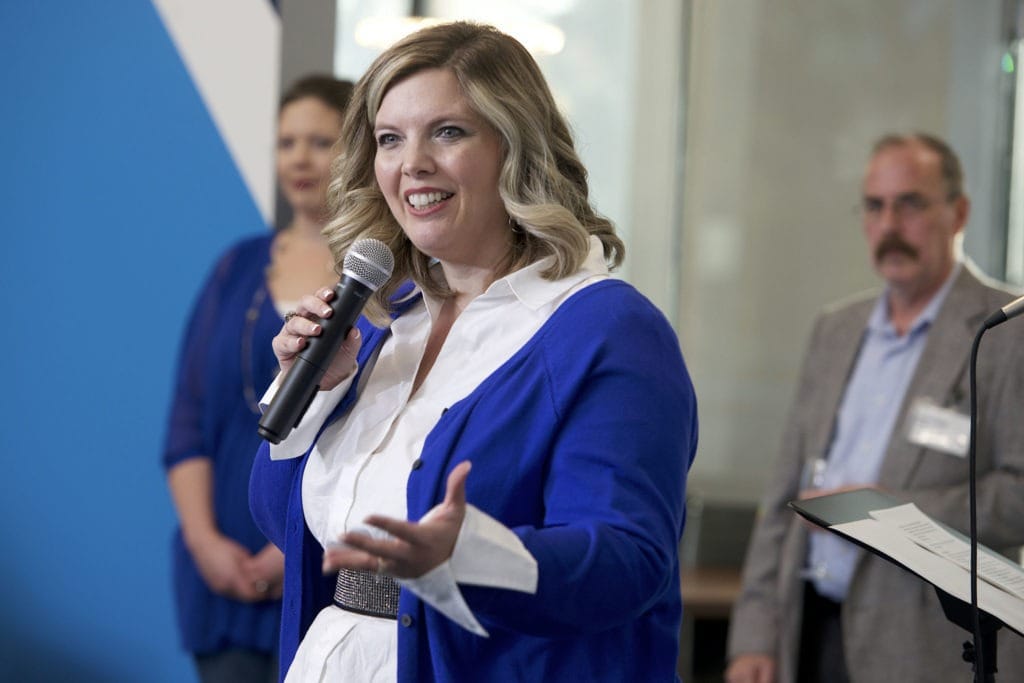
Dr. Brenda Cimbura: Thank you, Mark. I cannot tell you how many times I’ve turned to his little blue book. I have had the honor and the privilege to be a doctoral student, so I’ve read way more than I ever care to remember.
When I was doing my research, there’s a lot of things that are really heady. There’s a lot of things out there that are hard. I would keep coming back to, “I need something that’s doable. I need something that I can simplify and actually work towards.”
Mark’s little book changed the way I would think about things. Even when my doctorate was totally overwhelming, and I wanted to quit, every single day, I would be like, “Tomorrow’s a new day. Reset what to do. You can do it.”
I would hear that little, tiny voice from those achiever circles that I would sit at, and we would conquer. Often people come up to me going, “You’re so busy. You’re doing so much. How do you keep up?” I’m like, “You just start over every single day.”
It’s the little, tiny things done time and time again, and you treat people the way they should be treated, and you do the right thing when it’s the hard thing, and all of a sudden things change.” You need to have a little bit of hope. You need to be optimistic. You need to have some confidence.
Most of all, you have to get up quick when you start to fall. I’m reminded of an Olympic skier I heard years ago at a conference. You were probably there. She was sharing about she had fallen, and she would have won the gold medal had she gotten up a few seconds faster.
I think about that. How quickly can we get back up on our feet after a hard day? I’m not the best at it, so I have room for improvement, but we’re grateful for the things that you have said. I hope that as you leave today, you’ll grab one of those books.
Maybe there will be one nugget ‑‑ all it takes is one ‑‑ to put change in place to make the next thing go forward. Thank you, and thank you so much for coming.
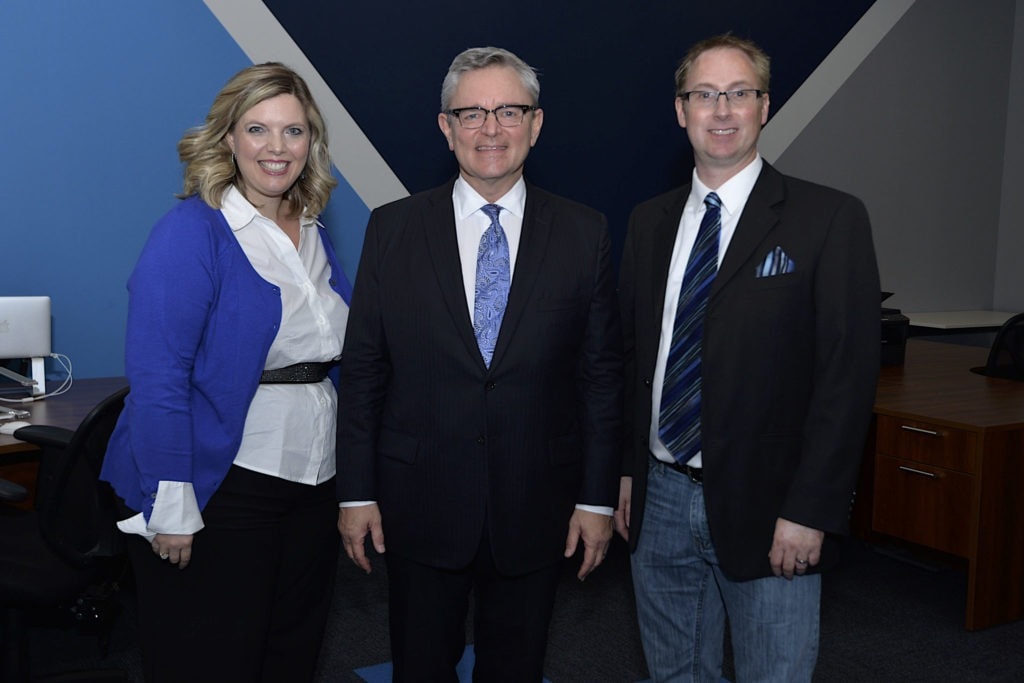
Mark LeBlanc’s book Growing Your Business is available on Amazon.com


